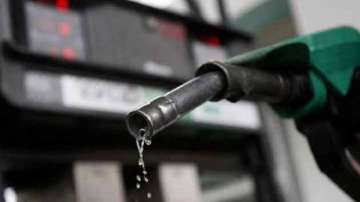Petrol, diesel prices to go up by Rs 0.50-1 a litre from April
Petrol and diesel prices may go up by 50 paise to Re 1 per litre beginning April when India leapfrogs to using Euro-VI emission-compliant ultra-clean auto fuels.

Petrol and diesel prices may go up by 50 paise to Re 1 per litre beginning April when India leapfrogs to using Euro-VI emission-compliant ultra-clean auto fuels. Currently, BS-IV grade fuel, equivalent to Euro-IV emission-compliant fuel, is being supplied in the country and the government decided to leapfrog to BS-VI grade fuel from April 2020 to cut vehicular emissions, which are one among the many reasons for rising pollution in the national capital and other cities.
Sanjiv Singh, chairman of Indian Oil Corporation (IOC), the country's largest oil firm, said that all of the company's refineries have started producing BS-VI grade fuel and the same will reach depots across the country by next month. "We are very much sticking to April 1 deadline and 100 per cent of petrol and diesel in the country will be BS-VI compliant from April 1," he said.
Petrol currently costs Rs 73.36 per litre in Delhi and diesel is priced at Rs 66.36 a litre. IOC invested Rs 17,000 crore in upgrading its refineries to produce the cleaner fuel while industry spent some Rs 30,000 crore.
"We are in the process of working out implications of supplying BS-VI fuel from April," he said adding that the international benchmark price for petrol and diesel compliant with BS-VI grade is higher than BS-IV fuel and since domestic fuel prices are directly linked to global rates, pump prices will have to rise.
He said exact numbers are being worked out but the increase would not be significant to warrant a staggered hike. "I don't think premium (for BS-VI) will be larger for it to be staggered," he said indicating a one-time hike in petrol and diesel prices when the BS-VI grade fuel is rolled out across the country.
Though the exact quantum is being worked out, the increase may be anywhere between Rs 0.50 per litre and Re 1 a litre, he said. As part of India's fuels upgradation programme, the vehicular pollution norms introduced in the early 1990s have been made more stringent over time. The current BS-IV norms were enforced in 2017, after BS-II and BS-III norms, which were enforced in 2005 and 2010, respectively.
In the transition to BS-VI fuels, BS-V norms have been skipped in order to have a more stringent standard at the earliest to curb pollution levels.
As per the roll-out plan, national capital Delhi and adjoining cities were to have BS-VI fuel supplies by April 2019 and the rest of the country from April 2020. Oil firms switched over to supply of BS-VI grade fuels in the national capital territory (NCT) on April 1, 2018. Supply of BS-VI fuels was further extended to four contiguous districts of Rajasthan and 8 of Uttar Pradesh in the national capital region (NCR) on April 1, 2019, together with the city of Agra. BS-VI grade fuels were made available in 7 districts of Haryana from October 1, 2019.
BS-VI fuels are ultra-clean fuels with sulphur content cut to just 10 parts per million (ppm) from 50 ppm in BS-IV fuels. The emission norms of BS-VI diesel are as good or even superior to those of compressed natural gas (CNG).
"Switchover to BS-VI fuel supplies by IOC's marketing and retail network is also in full-swing across the country. As per the current progress, about 80 per cent of IOC's 121 bulk storage terminals/depots will achieve the conversion from BS-IV to BS-VI fuels by January 31, 2020. In the markets catered to by them, 100 per cent dispensing of BS-VI fuels at petrol/diesel stations is likely to be achieved by the end of February 2020," Singh said. "IOC is confident of supplying BS-VI fuels pan-India well ahead of the deadline of April 1, 2020."